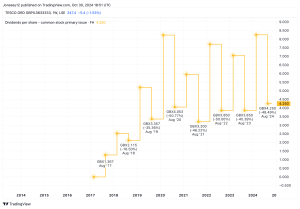Share this page:
The State Pension is a regular payment from the government that some people can claim when they reach State Pension age. The payment increases every year to keep up with rising living costs and to reflect the country’s economic trends.
However, it appears that not all UK retirees have actually benefited from the annual boost in State Pension. More specifically, figures suggest that nearly half a million international retirees could be losing out on the annual basic State Pension increase.
But how has this happened? And what can future pensioners who may experience the same issue do to protect their retirement? Read on to find out.
Claiming UK State Pension when you retire abroad
If you decide to retire abroad, you can claim and receive a State Pension if you have reached State Pension age. To make your claim, you need to either:
Your pension can be paid to a UK bank or a building society, or to a bank in the country you’re living in.
Half a million international retirees miss out
While retiring abroad doesn’t mean having to sacrifice your State Pension, you might not be able to benefit from the annual boost in your payments. Your State Pension will only increase if you live in:
Simply, put, there are more than 100 countries in the world where the State Pension does not go up each year.
According to PensionBee, this means that as many as 500,000 international retirees are losing out on annual basic State Pension increases. Those whose pensions have been frozen for 20 years and more could have missed out on tens of thousands of pounds.
Unfortunately, that is not the only issue that international retirees face. According to PensionBee, some international retirees have also experienced problems when trying to claim their pension. Some say that their applications often stall or go around in circles.
How future pensioners can protect their retirement
Even with the annual increase in State Pension, the reality is that the amount you will get is not likely to be enough to cover the kind of lifestyle you want in retirement.
For example, the Pensions and Lifetime Savings Association (PLSA) says that to sustain a ‘minimum lifestyle’ in retirement, you need to have an annual income of at least £10,900. This can cover your basic needs as well as the occasional social outing or meal out.
Meanwhile, the full basic State Pension for the 2022/2023 year will be £7,376.20, while the full new State Pension will be worth £9,627.80.
Simply put, there’s a disparity between what you might get in State Pension and what you may require in retirement.
That is why, whether you are eligible for State Pension or not, and whether you receive an annual increase or not, it is a good idea to have an alternative source of retirement income.
So, what are some of your options?
1. Enroll in a workplace or private pension
Enrolling in a workplace pension or a private pension can help you build up a sufficient nest egg to cover your desired retirement lifestyle. The main advantage of saving for retirement through a pension is that you get tax relief on your contributions. And in the case of a workplace pension, your employer may also make contributions to the pension as well.
You can use an online pension calculator to figure out how much you need to save or contribute each year to meet your retirement income goals.
2. Invest in a stocks and shares ISA
Outside a pension, a Stocks and Shares ISA offers another tax-efficient way to invest for the future.
Every year, you can save up to £20,000 in a stocks and shares ISA invested in a wide variety of investments, such as shares, funds and trusts. Any returns from investments within an ISA are usually exempt from tax.
If that sounds like something that might interest you, check out our list of top-rated stocks and shares ISAs in the UK.
Please note that tax treatment depends on the individual circumstances of each client and may be subject to change in future. The content in this article is provided for information purposes only. It is not intended to be, nor does it constitute, any form of tax advice. Readers are responsible for carrying out their own due diligence and for obtaining professional advice before making any investment decisions.
Was this article helpful?
YesNo
About the author
Sean is a personal finance writer with a strong passion for helping others become more financially literate and make better financial decisions. He covers everything from credit cards to savings to investing.
Share this page:
Some offers on The Motley Fool UK site are from our partners — it’s how we make money and keep this site going. But does that impact our ratings? Nope. Our commitment is to you. If a product isn’t any good, our rating will reflect that, or we won’t list it at all. Also, while we aim to feature the best products available, we do not review every product on the market. Learn more here. The statements above are The Motley Fool’s alone and have not been provided or endorsed by bank advertisers. John Mackey, CEO of Whole Foods Market, an Amazon subsidiary, is a member of The Motley Fool’s board of directors. The Motley Fool UK has recommended Barclays, Hargreaves Lansdown, HSBC Holdings, Lloyds Banking Group, Mastercard, and Tesco.
This post was originally published on Motley Fool







